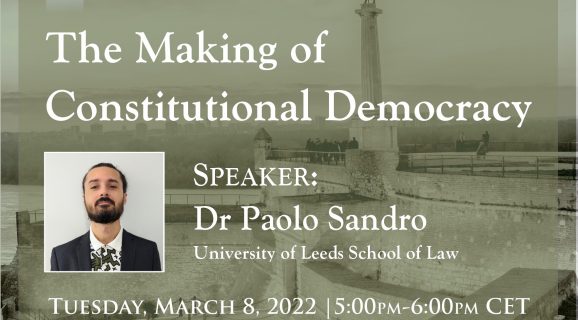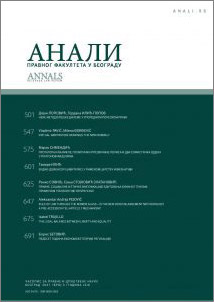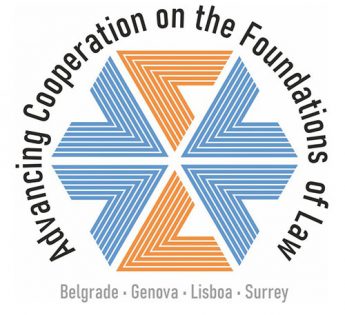
BLTG Meeting (8.3.2022.) Prof. Paolo Sandro, The Making of Constitutional Democracy
Belgrade Legal Theory Group organized its first online event in 2022, with a guest lecturer in social, legal, and political theory. This time, prof. Paolo Sandro (University of Leeds) presented parts of his recently published book The Making of Constitutional Democracy: From Creation to Application of Law.
The introductory speech was given by the moderator, prof. Bojan Spaić (University of Belgrade). He introduced the book by stating that it is a defense of a distinction between the creation and application of law within the frame of constitutional democracy. Following the introduction, prof. Sandro outlined the book’s content and shortly explained the content of the chapters. He then moved to the arguments from the second chapter, on which he primarily focused in the presentation, illustrating the two main topics: constitutionalism as “Legal otherness” and problems with political constitutionalism.
Prof. Sandro paramount concern regarded the relationship between democracy and constitutionalism. He pointed out that inherent contradictions characterize constitutional democracy since democracy demands the unlimited will of the people, while constitutionalism wants to ground universal human rights independently from any kind of government. As is well known, constitutionalism cannot be equated with having a constitution and prof. Sandro claims that it demands a limitation of law by law. That leads him to a need to distinguish between law as lex and law as ius. In the Anglo-Saxon legal tradition, the ius could be found in the common law, applied by the courts, as it represents legal norms with a different source than that of lex (norms provided by the government). Great Britain does not have a codified constitution but rather functions based on trust among the legal and political actors, who all abide by the conventional norms. The idea of ius is always to have a morally (justice) based legal source that the sovereign cannot influence. From prof. Sandro perspective, that could also be achieved through an enacted constitution that is legally above the ordinary legislation if it has the right content.
Further, he commented on common law constitutionalism in Great Britain, saying it should not be seen as a work of an invisible hand and that informal conventions should be used in the context of constitutionalism. Prof. Sandro went on to criticize Waldron’s view of the difference between constitutional and regular legal norms, claiming that there are not enough arguments as to say the constitutional norms gain a life of their own when the judges interpret them, since such a conclusion may only be possible in the US system. In other cases, they are determinate enough and resemble ordinary norms, leading to the conclusion that judicial review is justified.
Following was the Q&A part of the event, with substantial interest from the audience.
The audience was focused on various aspects of the topic: from the problematic assumption that in the continental legal tradition it is enough to rely on the will of the people to enact a righteous constitution alongside the parliament to the relation with Kelsen’s statement that judges create law and prof. Sandro understanding of constitutional amendments given by the courts. Also, participants wanted to know about the potential indeterminacy of constitutional provisions and Paolo’s take on the claim that linguistic indeterminacy cannot be equated with that of the law, meaning the law is not linguistically determined.
Prof. Sandro referred to each of the questions in the given order. First, he stated there definitely is a difference between the main two legal traditions, but he basically relies on the moral grounding provided by the people (as in the common law system) with an emphasis on the source. Then he outlined the main problems with Kelsen’s theory, saying that from such a perspective, it is impossible to distinguish between the actual application of a given norm and a true creation, as well as that in the end, for Kelzen as a realist, everything is possible for the judge. Afterward, prof. Sandro concisely emphasized the importance of a context regarding the possibility of accepting judiciary amendments, therefore accepting both potential solutions. Finally, he agreed that constitutional provisions are different and concluded that judges cannot be seen as sovereign just because they interpret the law.
Ending the meeting, prof. Spaić thanked everyone for an excellent discussion, as well as prof. Paolo Sandro for the interesting lecture.




